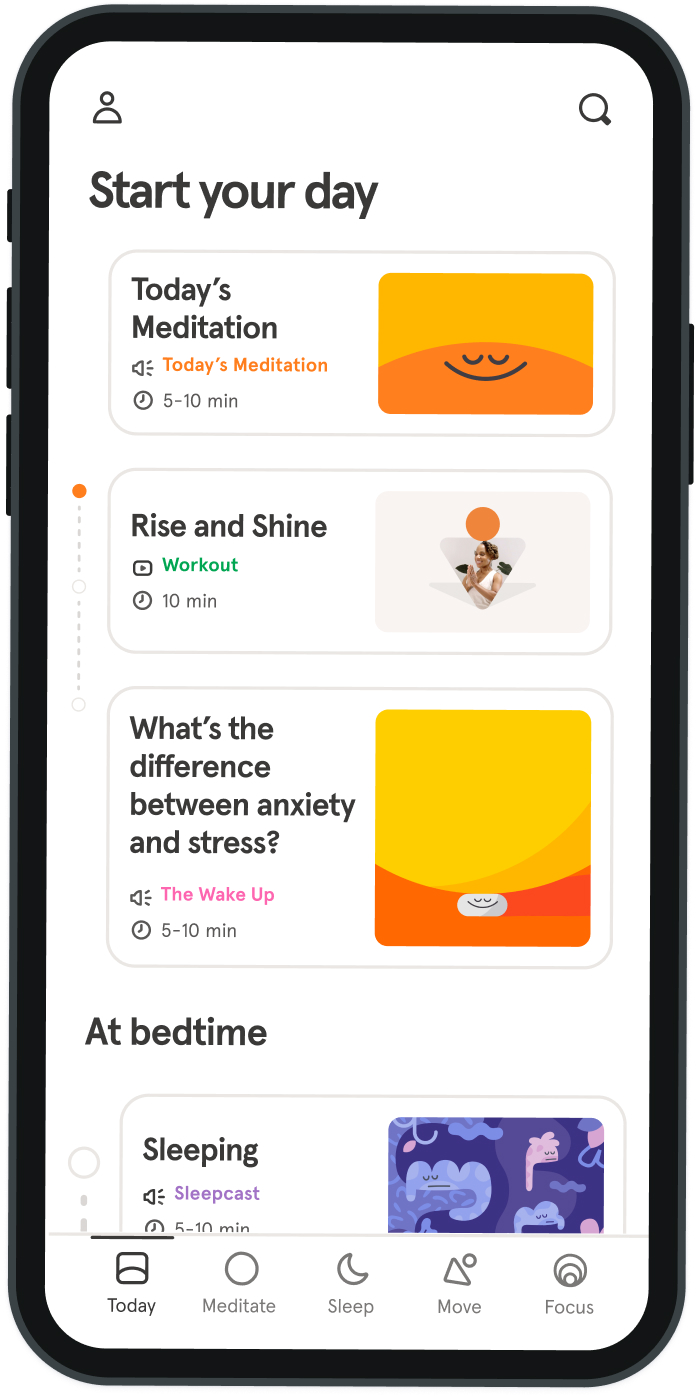Finding growth through pain
Ever since I watched my grandfather succeed as a businessman and father of five despite his crippling injury from polio, I’ve wondered: How is it possible that some people emerge from pain fortified? As a reporter, when I visited earthquake victims and torture survivors, that thought continued to tug at me. Why do some people fall apart after catastrophes while others not only survive, but thrive? What makes the difference?
When I found myself bedridden with a virus for eight months in my twenties, I cried and cursed and raised my fist at the sky just in case someone up there was pulling the strings. Life, I need to speak to your supervisor! I had been meditating, trying to quell my pain by focusing on my breath, so why wasn’t I staying calm and collected? I realized that I had fallen into the common trap of using meditation as a relaxing, feel-good activity, rather than as the powerful ally in facing the fullness of life that it could be. I wondered: what would happen, if instead of being so quick in trying to kill the pain, I tried to use meditation to lean into the pain, stay present and curious with it? Could I learn to see it as a guide and understand what it was trying to teach me? Most people have heard of posttraumatic stress. Yet, beyond the medical community, few are aware of the evidence of posttraumatic growth. According to psychologist Richard Tedeschi, the leading researcher in posttraumatic growth, as many as ninety percent of survivors report at least one aspect of posttraumatic growth, such as a renewed appreciation for life or a deeper connection to their heart’s purpose. This does not happen immediately or easily. We need to actively work toward positive change, and we need the right tools and support in order to transform a bad break into a breakthrough. Here are some of the tried-and-true methods I have learned from survivors such as civil rights hero Maya Angelou, athletes, cancer patients, and psychologists: Let the pain crack you open Before we can overcome suffering, we need to go through it. The way beyond suffering leads through, not around. It's from the fierce place of acknowledging the raw spots that we derive strength. It is all too easy to let a shock harden us, close us down, make us more anxious and uptight. Yet, we could use it the opposite way—to let it crack us open. Cultivate compassion for others who are suffering. Practice loving kindness meditation for yourself and others.
Find your people Nobody can do it alone. Resilience is a team effort. Reach out, connect, ask for help, including professional help. Nothing is as powerful as knowing we are not alone. Stretch yourself Resilience is like a muscle that atrophies when left idle and strengthens with exercise. Absolutely everyone can learn to build resilience. We have no control over what happens to us, our bodies, and our loved ones, but we can learn to master what matters most: our mind. Take breaks from pain It is absolutely necessary to take a temporary leave of absence from pain. Not once, but regularly. Invite positivity into your life in whatever form it takes for you. Visit a friend, tend to your garden, take up yoga or meditation! Nurture an “attitude of gratitude” (Maya Angelou). Keeping a gratitude journal has proven to be extraordinarily helpful in boosting our spirit. Make friends with yourself Develop a true, honest, warm friendship with the person you rely on most—yourself. In a crisis, we are often the ones who beat up on ourselves the most. Forgive yourself and move on. Getting sleep, physical exercise, and eating healthily are basic steps toward sanity. We cannot truly be there for others if we don’t take care of ourselves. Connect with your body, spend time in nature, whatever nourishes your spirit.
Focus on the things you can do Instead of saying, “Why me?” and focusing on all the things you lost, focus on the things you still have and the things you can do now. Integrate the event into your life's narrative Eventually we need to weave the traumatic events into the narrative of our life. This process can take years, or even decades. But at some point in our life, we need to acknowledge and accept that what happened has become part of our story. We will rewrite our life’s script. Inspire others Commit random acts of kindness. Remember Maya Angelou’s wise words: “Be a rainbow in someone else’s cloud.” Let go, but don’t give up Let go of the expectation to achieve a certain outcome. Value the process more than the result. But at the same time, keep trying. Never give up. As Nelson Mandela said, “It always seems impossible until it’s done.”

Develop a true, honest, warm friendship with the person you rely on most—yourself
Michaela Haas


Be kind to your mind
- Access the full library of 500+ meditations on everything from stress, to resilience, to compassion
- Put your mind to bed with sleep sounds, music, and wind-down exercises
- Make mindfulness a part of your daily routine with tension-releasing workouts, relaxing yoga, Focus music playlists, and more
Meditation and mindfulness for any mind, any mood, any goal

Stay in the loop
Be the first to get updates on our latest content, special offers, and new features.
By signing up, you’re agreeing to receive marketing emails from Headspace. You can unsubscribe at any time. For more details, check out our Privacy Policy.
- © 2025 Headspace Inc.
- Terms & conditions
- Privacy policy
- Consumer Health Data
- Your privacy choices
- CA Privacy Notice
